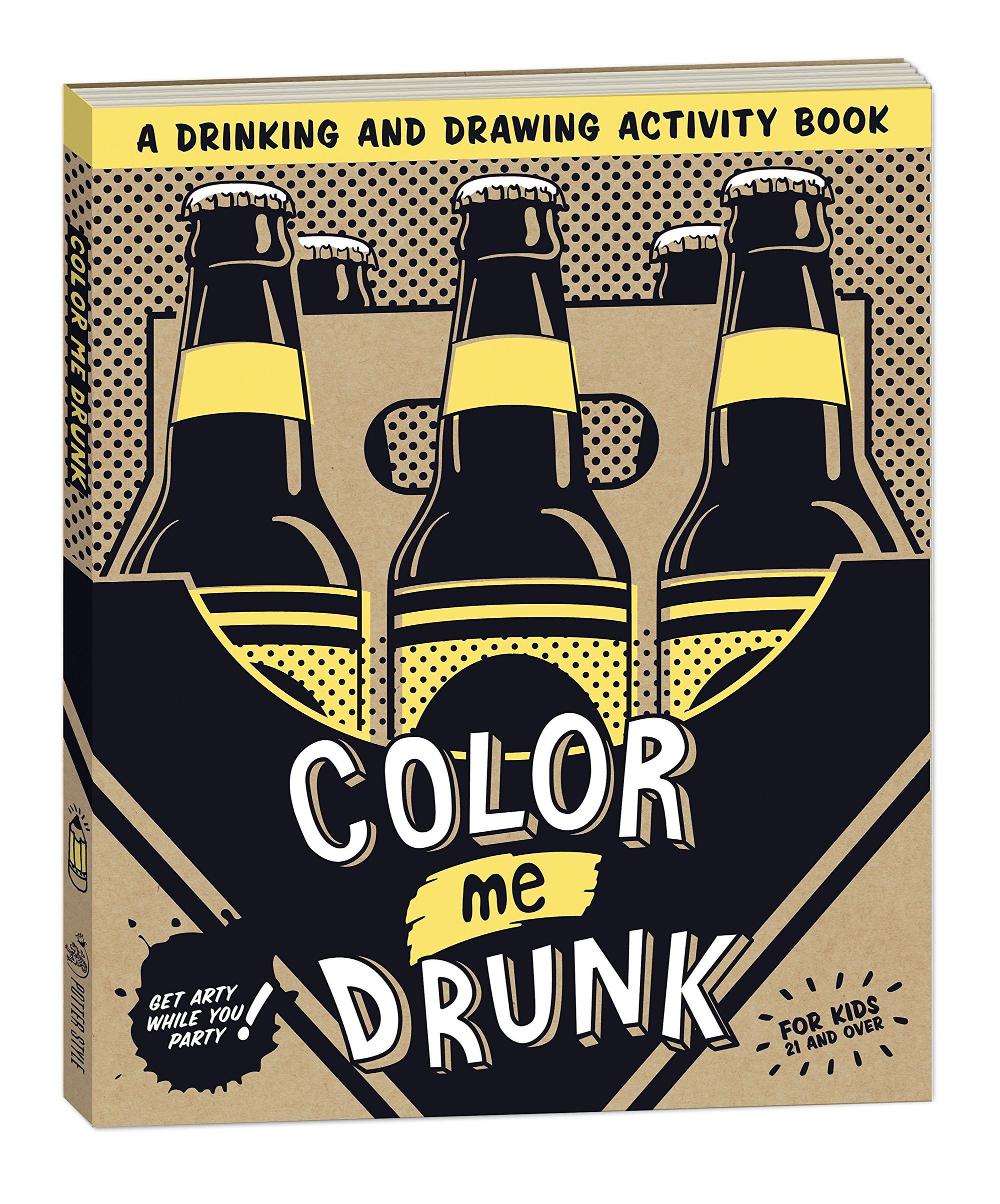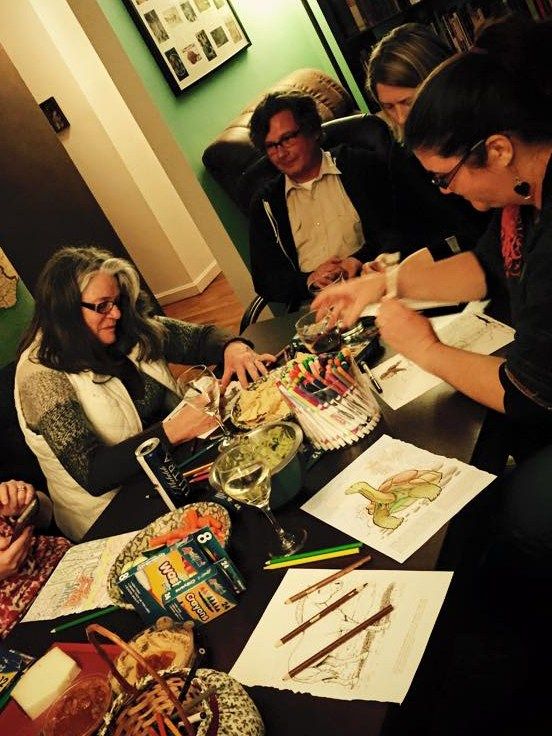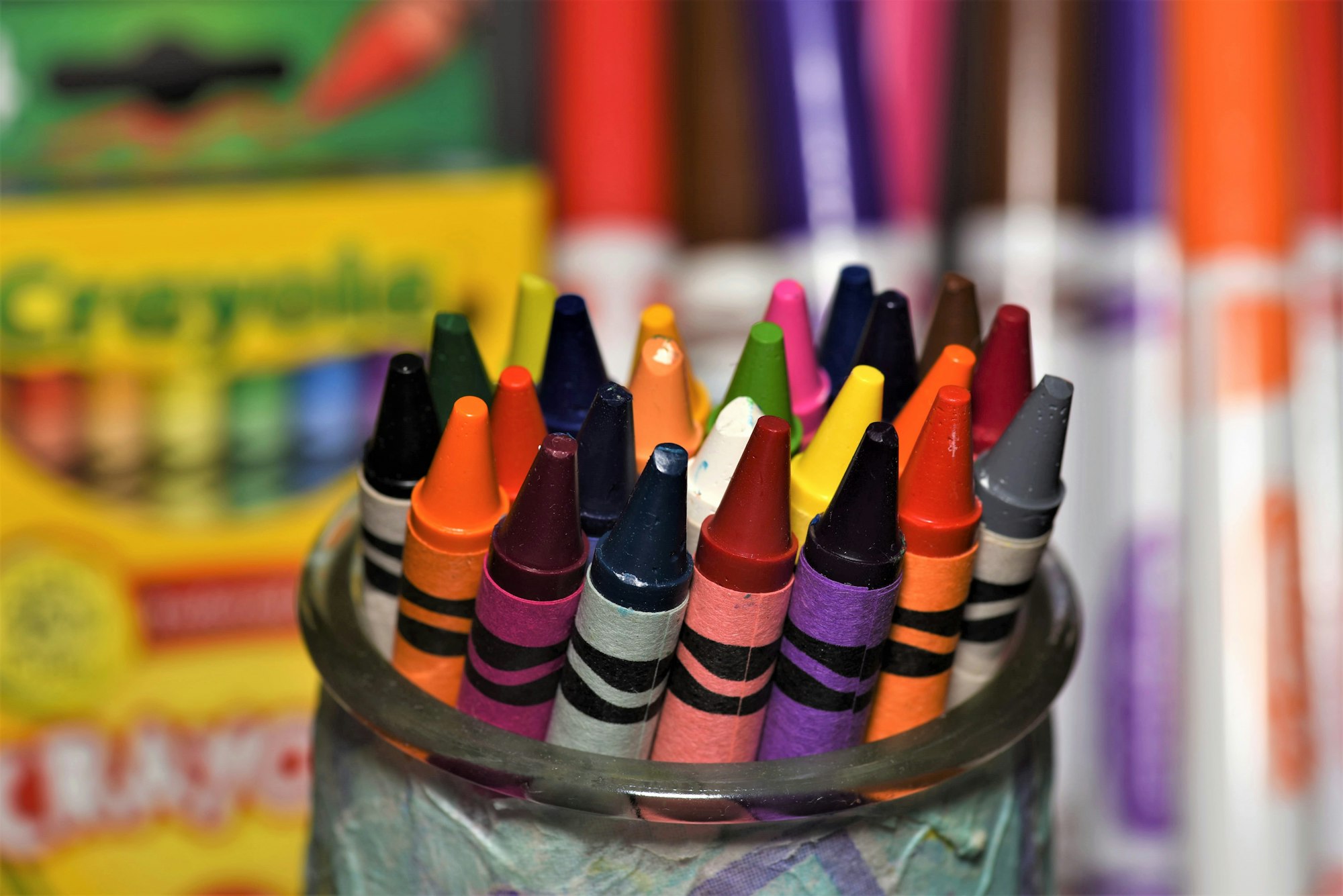At our home it's not uncommon to have friends over for a casual evening that's very focused on relaxing. This often involves music, cheese, snacks, a bit of wine, and a massive amount of conversation. A few weeks back, we tried something new. We called it our "coloring happy hour" and nabbed a small pile of adult coloring books with titles like Unicorns Are Jerks by Theo Nicole Lorenz, The Zoology Coloring Book by Lawrence M. Elson, Color Me Drunk by Potter Style, and Star Wars Episode I: Heroes And Villains Coloring Book by Scholastic. What followed was much laughter, some wonderful artistic expression, and one of the more enjoyable gatherings we've had in years.

Today I noticed some press for the upcoming The Official A Game Of Thrones Coloring Book from George R. R. Martin and Bantam Books. Previously, I'd heard that books like Secret Garden: An Inky Treasure Hunt and Coloring Book and Enchanted Forest: An Inky Quest And Coloring Book by Johanna Basford (both adult coloring books) had made news for selling millions of copies and scoring best-seller status on Amazon. All this started me thinking and asking questions. Is this becoming a thing? What's behind this return to putting colors on a page for fun? Will Mr. R. R. Martin be able to finish this coloring book series to the satisfaction of his fans? Burning questions in need of answers, indeed. Culturally we’re seeing what feels like a rise in the desire to simplify life, or at the very least reduce the effort it takes to have fun. You can see hints of this in our entertainment choices. There are now summer camps for adults bringing the concept of camp competition and “color wars” to an entirely new range of ages. In the young adult book world, over 55% of these books are actually read by adults. In the toy world there has been a sea of change in marketing as toys are now targeted as much toward adult collectors as the kid consumer. Is it any wonder that the simple pleasure of putting color on a page is something that is coming back with a vengeance?
These trends are not without their detractors. Some point to a "Peter Pan Syndrome" where adults simply don't want to grow up. American philosopher and essayist Susan Neiman tries to explain this in her recent book Why Grow Up. She argues that the absence of appealing models of maturity is not an accident. She points to the fact that we teach kids that growing up is a downhill process (especially when it comes to fun), and in this way we prepare them to expect and demand very little from life, fostering a desire to stay young in our pursuits. Personally, I'm not one to buy into these detractors, especially when they lump adult relaxation into that mix and trivialize it as something shameful that we should outgrow. Adults should be encouraged, not discouraged, to take back a little bit of fun into their life. I don’t think any of us would argue that we live in a world that is fundamentally more complex than it was in say the '50s, '70s, or even '90s. In that realization, don't we also have to admit that it is okay to surrender your tensions for something more simple and more fun? Who hasn’t been overwhelmed just trying to pick a movie on Netflix? There are so many options in life that simpler times and simpler pleasures can feel very inviting and beg to be re-explored, not just because they were comforting, but because they were fun.

Our society has relaxed the rigidly defined borders of what it means to be adults and more and more people are embracing the idea that the things you loved as a kid can grow with you and become perfectly acceptable forms of entertainment for adults. This trend is more about people embracing what they love. It’s also about being less afraid that society will judge you for it. There is no reason you can't spend an evening coloring and also pay your mortgage on time like a responsible adult.

